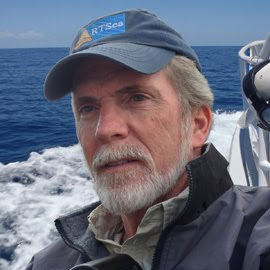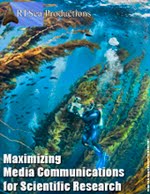 Now here is a different spin on current conservation strategies, one that takes a skeptical look at the overall approach taken by many western-style societies when it comes to implementing animal reserves and ecotourism operations. It may not be a perspective that you agree with (it made me squirm in my seat to read it), but as we move forward in our efforts to conserve animals and natural resources worldwide, it's worth considering so that we can best insure that we're on a fair course.
Now here is a different spin on current conservation strategies, one that takes a skeptical look at the overall approach taken by many western-style societies when it comes to implementing animal reserves and ecotourism operations. It may not be a perspective that you agree with (it made me squirm in my seat to read it), but as we move forward in our efforts to conserve animals and natural resources worldwide, it's worth considering so that we can best insure that we're on a fair course.As reported in The Guardian, in the new book Nature Crime: How We're Getting Conservation Wrong, author and professor of international politics Rosaleen Duffy declares that, in many developing countries where endangered species or habitats exist, conservation efforts often penalize or even criminalize large segments of a population which can threaten their very existence. According to Duffy (who supports the need for animal and habitat protection), this can cause bigger long-term problems in keeping these disenfranchised groups in step with the program.
The Guardian reports, "When wildlife reserves are established, Duffy says, local communities can suddenly find that their everyday subsistence activities, such as hunting and collecting wood, have been outlawed.
At the same time, well-intentioned attempts to protect the habitats of animal species on the edge of extinction lead to the creation of wild, 'people-free' areas. This approach has led to the displacement of millions of people across the world.
'Conservation does not constitute neat win-win scenarios. Schemes come with rules and regulations that criminalize communities, dressed up in the language of partnership and participation, coupled with promises of new jobs in the tourism industry.'"Ecotourism is another area in which Duffy is critical. Developing ecotourism in areas with the promise of increased tourism and jobs, can in the end prove counterproductive when there is hotel development to support the tourism, work done to provide tourists with a "clean" experience (pristine white beaches, etc.), but a populace that does not fully benefit from the limited number of jobs that ecotourism can sometimes generate.
"'Holiday makers are mostly unaware of how their tourist paradises have been produced,' she says. 'They assume that the picture-perfect landscape or the silver Caribbean beach is a natural feature. This is very far from the truth. Tourist playgrounds are manufactured environments, usually cleared of people. Similarly, hotel construction in tropical areas can result in clearing ecologically important mangroves or beach building which harms coral reefs.'"
Duffy's thesis is that many conservation strategies are too optimistic and there certainly have been instances where the end results were not as anticipated for both, the environment and the
 community. So, I personally take what she says as more of a warning rather than an across-the-board indictment. Government, non-profit, and commercial organizations involved in conservation efforts - from reserves and protected areas to ecotourism - must be cognizant of how their efforts might inadvertently penalize subsistence-level groups which, in the long run, can undermine the success of the strategy. It's a challenge getting the balance just right between the interests of all.
community. So, I personally take what she says as more of a warning rather than an across-the-board indictment. Government, non-profit, and commercial organizations involved in conservation efforts - from reserves and protected areas to ecotourism - must be cognizant of how their efforts might inadvertently penalize subsistence-level groups which, in the long run, can undermine the success of the strategy. It's a challenge getting the balance just right between the interests of all. The article is thought-provoking as I found myself both initially disagreeing with her position and yet taking stock of many conservation programs, checking to see if there could be roadblocks to their success down the road. I may even read her complete book, just to make sure I'm on my toes when it comes to analyzing and supporting the best conservation efforts.
Read the article in The Guardian.
Buy the book at Amazon.

















No comments:
Post a Comment